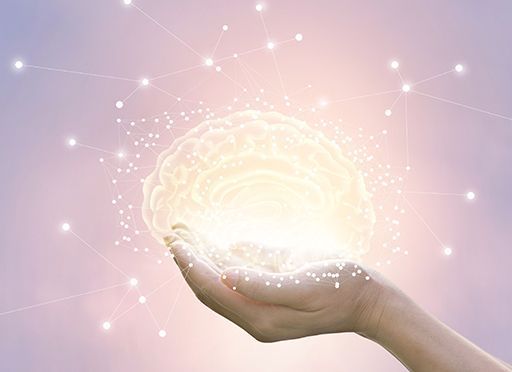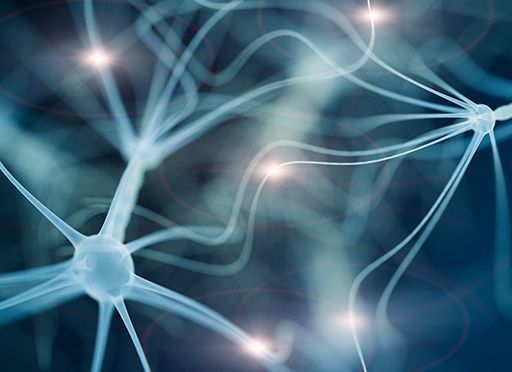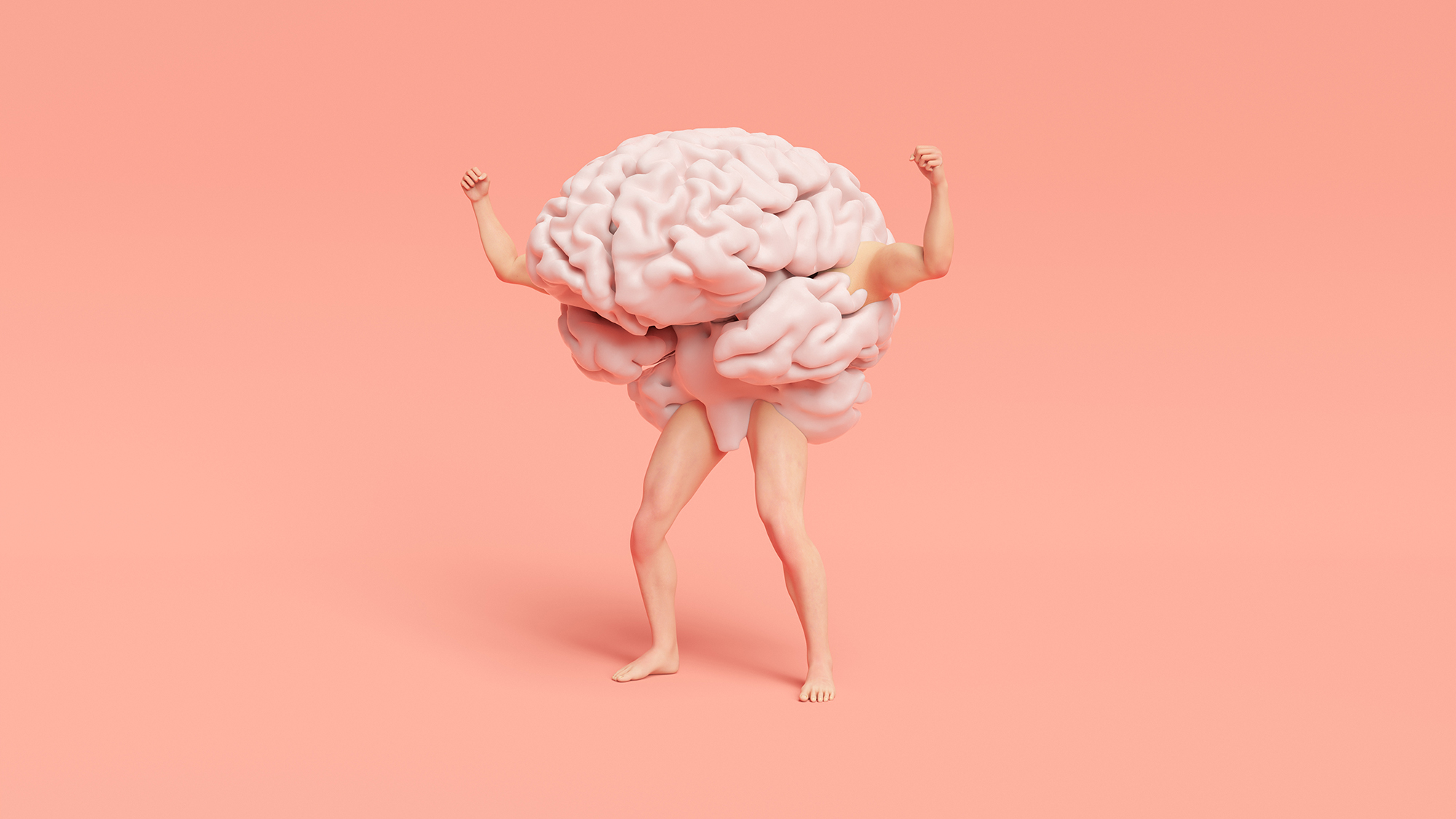How to Improve Your Memory

Researchers estimate the information storage capacity of the human brain is quadrillion bytes. But where is that brain capacity when you can’t find your car keys? In The End of Absence, author Michael Harris cites research showing people are becoming better at remembering where to find data than remembering the data itself. Everybody forgets things from time to time. And maybe it seems old-fashioned to want to improve your memory. Since the internet puts every fact at your fingertips, why even bother?
Memory is how you know who you are and how you keep track of what you’re doing. Short-term, or working, memory, is like your brain’s central desk, where you keep track of constantly changing variables in order to make myriad decisions and navigate your day. Much of that information never makes it into long-term memory and is quickly forgotten. The memories you store over the long term form the raw material of your creative thought and focused intentions. You rely upon long-term memory for learning.
Memory is a lived, morphing experience…not some static file from which we withdraw the same data time and again.
Michael Harris
Your mind is a unique collection of what you remember – people, facts, events, songs, perceptions. Unlike a file cabinet, your memories are changing and dynamic. Creativity arises from the unique ways you connect them together. Build this capacity with these tips:
1. Decide to Pay Attention
Enhance your attention by taking a moment to become hyperaware of your surroundings. Ground yourself in the present moment. Multitasking is not your (memory’s) friend. Attempting to multitask can cause a temporary drop of 15 IQ points. Your prefrontal cortex gives you the ability to focus, but it’s easily distracted. You greatly diminish your ability to learn when you undermine your ability to focus. Minimize distractions so you can focus on the material you’re trying to learn. Resolve to be a serial monotasker.
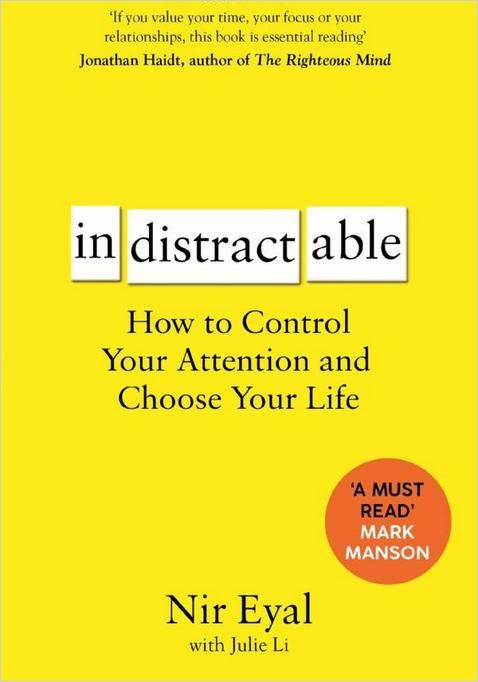
Not paying attention is the number one reason that healthy individuals experience difficulty remembering names, events and that thing you went into the other room to get.
Andrew E. Budson and Maureen K. O’Connor
Set aside time specifically for learning. Disable your notifications and decide to focus.
2. Connect and Repeat
When you’re learning challenging material, it’s helpful to “chunk” it into smaller segments. If you’re trying to teach others so they’ll remember, keep it lively. Bored brains switch off and don’t remember a thing. Seek to actively engage your listeners. Use the chunking technique and organize segments around something interesting or emotional. Then link segments together hierarchically, providing context along the way. Review periodically. This creates stronger synaptic connections in the brain which aid recall. The brain remembers the first and last piece of information best, so keep this in mind.
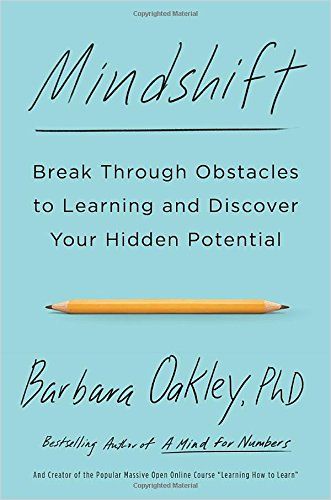
Experience builds up the internal infrastructure you need to retain more information about your work. Your ability to improve your performance depends upon deliberate practice. When you deliberately practice a skill, you encode it into long-term memory. This is what author of Simple Is the New Smart, Rob Fazio, calls “mind muscle memory.” By spending the time on practice, strengthening that “mind muscle,” you don’t need to spend any time thinking about technique when the moment comes to act. High performance depends on transferring skills to “procedural memory,” which is unconscious, and freeing up your working memory so you can continue taking in new information. For instance, musicians might drill chord progressions to free up capacity to more easily learn a specific song.
3. Learn Some Tricks
Can video games help you painlessly improve your memory? The short answer is: No. A game can make learning something new more fun, which means you’re likelier to keep learning. As game levels get more difficult, your skills improve. But while you may get better at playing a memory game, for instance, you won’t necessarily get better at remembering names. However, more complex games that require you to tax your working memory and act quickly help to build the capacity to resist being easily overwhelmed by information.
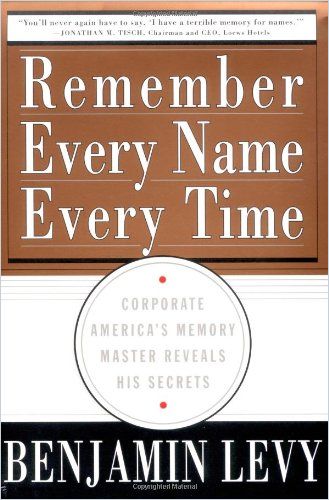
Former US President George W. Bush has a good memory, but he juices it by giving the people around him nicknames, which helps him remember their real names. Getting better at remembering names starts – like all things you wish to remember – with paying attention. Listen to what the other person says. Make eye contact and look at their face.
Acronyms can help make new information stick better. The “FACE” – “Focus, Ask, Comment, Employ” – technique is a mnemonic trick to remember names:
- Focus on remembering names. Keep in mind every person you meet is a potential client.
- Ask the person you meet about their name or just repeat it.
- Comment or mentally connect the name with something that has personal meaning, like a song.
- Employ the name casually in conversation. Doing this a few times will seal the person’s name in your memory.
If you are going to get a name and remember it, there must be no more important person in the world to you for the…20 seconds it takes to make your initial contact.
Benjamin Levy
Former US President Bill Clinton kept track of the people he met and the events he attended by writing out his memories on index cards. By the end of his tenure, he’d collected over 10,000 cards and a reputation for an amazing memory.
4. Involve Your Senses
Link new information or people’s faces to a mental picture that is memorable. Pair text you need to memorize with images. The more sensory inputs you give your memory to hook into, the greater the chances you’ll remember and later recall the information you’re learning.
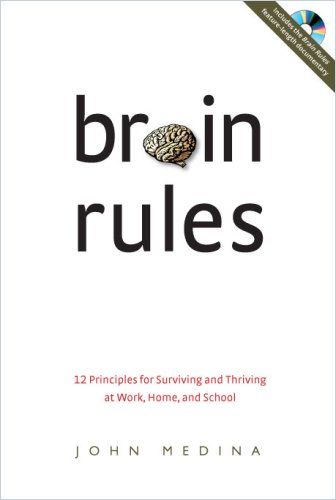
Create a “mind map” to learn new information, so you’re linking it to another sense, in this case, the visual sense. Map how the ideas you’re learning relate to each other and review to commit the information to long-term memory.
Author and psychologist Scott Plous, PhD, notes in The Psychology of Judgment and Decision that memory is not always the best basis for decision-making. When you remember something, you’re not recalling exactly what happened, but rather your reconstruction of it, which you flavor by your interpretation, perspective and feelings. Writing memories down counteracts their deterioration.
5. When All Else Fails, Take a Nap
Transferring memories from short to long-term storage depends on rest. So, if you’re suffering from information overload, take a nap. While you sleep, the brain clears memories from the hippocampus which makes room for new ones, and it consolidates the memories you want to keep to the neocortex. Forty-five minutes is ideal. Beware that skimping on sleep at night will cut into your working memory.
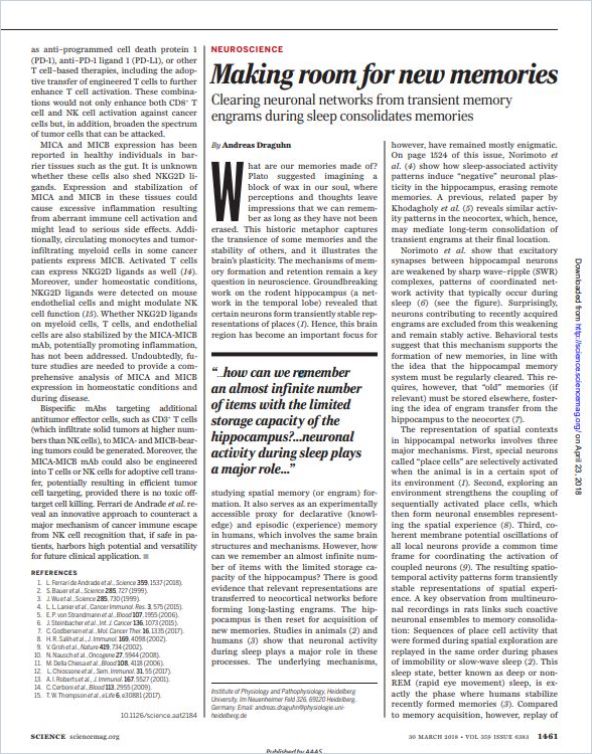
This mechanism works even if you’re just resting or doing rote activities where your attention can wander. This is why some people are more productive when they work at a coffee shop. The background noise and other activity doesn’t keep you from concentrating but occupies you when you take a break, allowing your consciousness to be more diffuse and consolidate information. Alternating between a focused and diffuse state is ideal for learning.
Stress can disrupt your working memory, impairing your ability to solve complex problems. While young professionals might jump into problem-solving, seasoned experts take time to understand a problem and settle on an approach. This depends on working memory. Worry about your performance can disrupt working memory, making your concerns a self-fulfilling prophecy.
If you’re concerned your memory lapses might be more than normal absent-mindedness, neurologists and authors of Seven Steps to Managing Your Memory Andrew E. Budson and Maureen K. O’Connor lay out principles that can help you distinguish between what’s normal memory and what might be cause for greater concern.
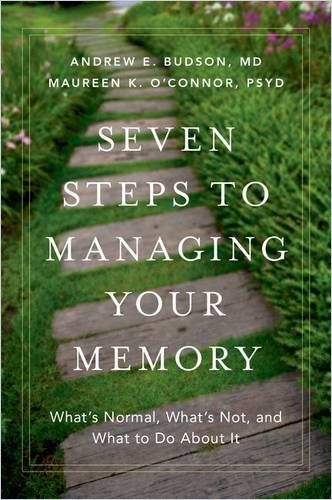
One of the most common causes of memory impairment [is] the side effects of medications.
Andrew E. Budson and Maureen K. O’Connor
Illness, trauma, anxiety or depression can also impair memory. Don’t underestimate the importance of staying hydrated, getting moderate exercise and a good night’s sleep. Perhaps try the cognition-boosting MIND diet. Aid your memory by putting events in your calendar. Make remembering where you put things easy by having a designated place for them. But if you’re having trouble doing habitual things, then see a medical professional for evaluation.
